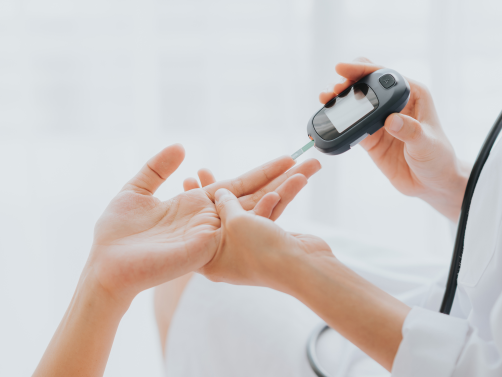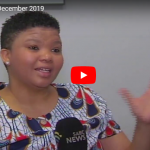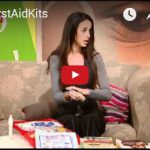A quiet coffee break turned critical in seconds.
Trauma nurse Catherine Rodwell shares how quick action—and a teaspoon of syrup—helped save a life during a sudden diabetic emergency. Whether you’re a parent, teacher, or just someone who wants to be prepared, this story is a powerful reminder of why first aid knowledge matters.
It was an ordinary morning at my favourite local coffee shop—until it wasn’t. As a trauma nurse and founder of Survival® CPR, I’ve learned to notice subtle signs that something’s off. That day, I spotted a couple at a corner table: the gentleman looked pale, beads of sweat glistened on his forehead, and he seemed to be fading in and out of awareness.
Instinct took over. I approached them and introduced myself. His partner was visibly panicked, her eyes darting around for help. I knelt beside him and calmly asked, “Do you have chest pain?” His breathing was shallow and erratic, and he was nearly unresponsive. Sensing the urgency—and drawing on my years of experience in ICU and field rescues—she whispered, “He’s diabetic.”
In diabetic emergencies, time and sugar are critical. I instructed the waiter to bring syrup (avoiding honey due to allergy risks). With careful precision, I placed half a teaspoon of syrup under his tongue. The sublingual route ensures the fastest absorption without risking aspiration, which can happen if someone is semi-conscious and tries to swallow.
While waiting, I loosened his collar and sponged his face with a damp cloth. Within moments, colour returned to his cheeks and his eyes regained focus. He blinked, then smiled with relief. A simple intervention—giving sugar—had reversed his hypoglycemic state.
Why Sugar, Not Insulin?
- Hypoglycemia vs. Hyperglycemia: You can’t tell on sight whether a diabetic’s blood sugar is too low (hypo) or too high (hyper) without testing.
- Safety First: Administering insulin to someone already low on sugar can plunge them further into danger, potentially causing loss of consciousness or worse.
- Sugar Has No Downside: If their blood sugar is high, a small amount of sugar won’t harm them, but if it’s low, it can save a life.
After he stabilized, I urged them to follow up with their doctor within the next 12–24 hours to monitor his glucose levels and adjust his management plan.
By Sister Catherine Rodwell
Founder, Survival® CPR
About the Author:
Founded in 2001 by Sister Catherine Rodwell—a seasoned trauma and ICU expert who has led medical evacuations across Africa—Survival® CPR empowers parents, nannies, childminders, teachers, and employees with life-saving skills. Catherine’s mission is to equip everyday heroes with the confidence and know-how to respond effectively in emergencies.
Feeling inspired to become the calm in a crisis?

Mental Health Day
We all have ‘mental health’, just as we all have ‘physical health’. And just like our physical health, we can all have times when our mental health is better than others. World Mental Health Day is a day of awareness that is observed on the 10th of October every year.

SHOP
Check out our online shop! Purchase our LATEST LAUNCH, our Online Baby and Child CPR and First Aid Course and start learning from your device at home and anywhere in the world! You can also purchase our popular Family First Aid Kits and we also offer Digital Gift Vouchers for any of
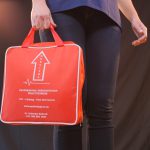
Family First Aid Kit
The Family First Aid Kit has been put together by Trauma and ICU experts to ensure your family outings always give you peace of mind.

Adult CPR & First Aid Course
Adult CPR & First Aid Course Our CPR and First Aid Course will provide you with Adult CPR and standard first aid information to meet all the requirements for certification. You will learn the appropriate skills and techniques to handle a variety of situations, from unresponsive victims to serious wounds.
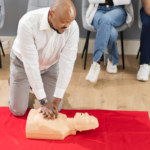
CPR for Professionals Course
The Resuscitation Council CPR for Professionals Course is designed for medical professionals (physiotherapists, chiropractors, homeopaths, doctors, nurses, dentists, pharmacists etc), who are registered with the Health Professions Council of South Africa. Members of the public are also allowed to attend this course. Medical professionals who need to learn or stay

Basic Life Support Course
Basic Life Support Course This American Heart Association Course is designed for medical professionals (physiotherapists, chiropractors, homeopaths, doctors, nurses, dentists, pharmacists etc), who are registered with the Health Professions Council of South Africa. Members of the public are also allowed to attend this course. UPCOMING COURSE DATES advanced life support
Burns: do you know the different types & how to treat them?
With National Burn Awareness Week (6-12 May) still top of mind, as well as the knowledge that as we approach winter our children will be increasingly exposed to heating appliances and fires, we asked Sr. Catherine Rodwell from Survival CPR to break down the different types of burns and explain


